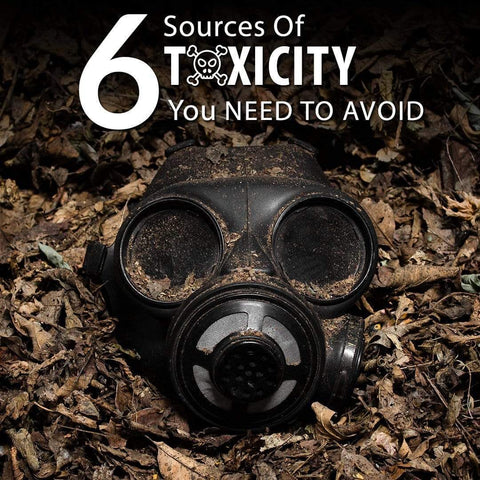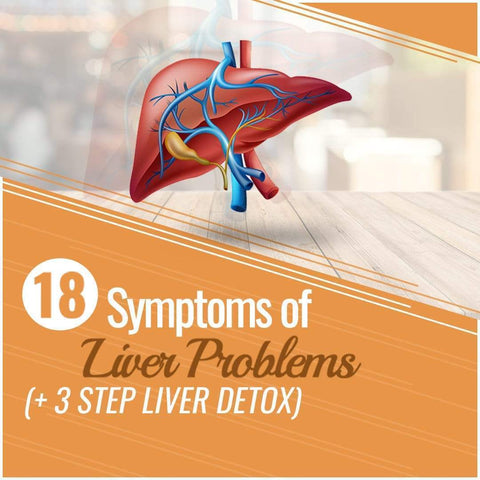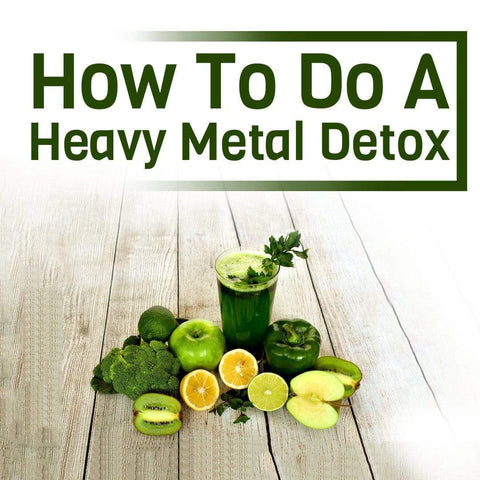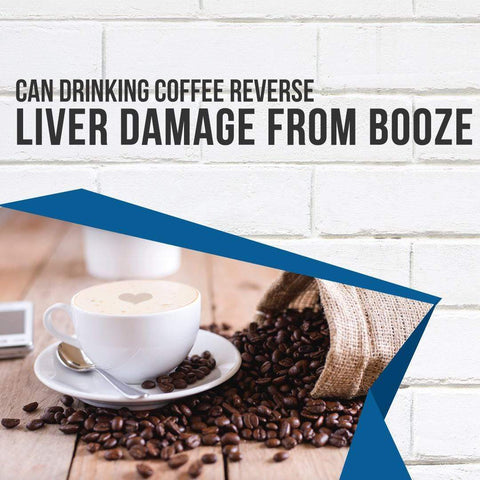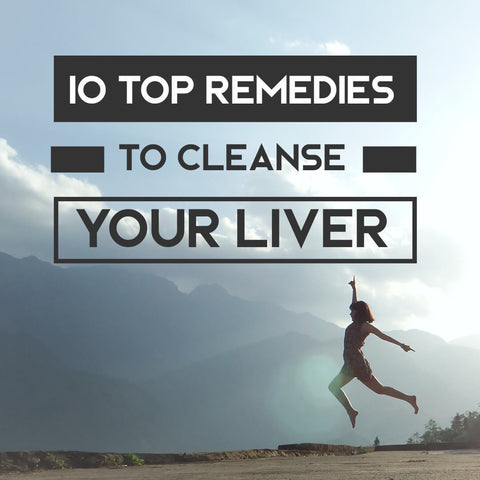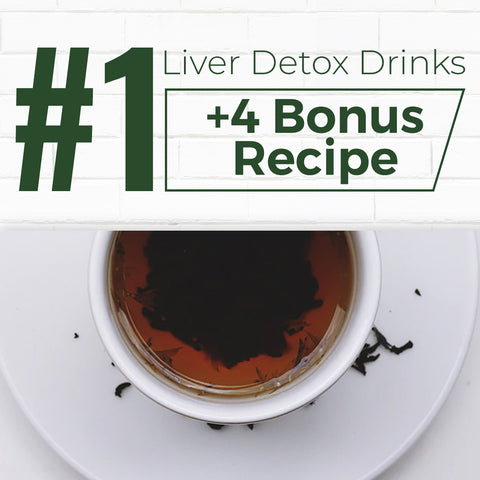
Since the industrial revolution, our world has become much more toxic. Factories and fossil fuel production have taken a toll on the environment - and as a consequence, on our bodies as well.
The Centers for Disease Control has stated that the current environment is 100 times more toxic than in our grandparents’ time. All sorts of pollutants have infested our food, water, and air.
These pollutants are damaging to your cells and can be implicated in many degenerative diseases. Pollutants - which we’ll discuss shortly - can damage your DNA and disrupt the metabolic functioning of your cells.
In other words, you’re more at risk for disease, accelerated aging, and a variety of life-damaging symptoms if your body is holding on to toxic substances.
There are also a few invisible toxins - harmful sources of toxicity that can’t be seen with the naked eye or a microscope.
Doesn’t sound too good, right?
Fear not!
Even though there are plenty of toxic and harmful substances in the world, becoming more aware of sources of exposure will protect your wellbeing. So let’s look at what these toxins are, how you’re exposed to them, and how to avoid them.
1. Heavy Metals

Certain metals in the environment are extremely toxic to our bodies. Lead and mercury are two examples of metals that many people accumulate in their bodies.
Lead has powerful toxic effects on nearly every organ system in the body and can cause a wide variety of symptoms, including “short-term memory or concentration, depression, nausea, abdominal pain, fatigue, insomnia, headaches, and slurred speech” 1,2.
Mercury isn’t any less toxic, symptoms can include “weakness, fatigue, anorexia, weight loss, and gastrointestinal disturbance” as well as depression and insomnia3.
So how do you avoid mercury and lead? Let’s look at the most common sources.
Exclusive Bonus! Download the FREE report ‘How To Detox Your Liver & Body in 3 Simple Steps’ by clicking here.
Most common sources of mercury exposure:
- Fish (especially large fish like tuna, halibut, shark)
- Shellfish (clams, scallops, mussels, shrimp)
- Dental fillings
- Polluted air
- Polluted water
Most common sources of lead exposure:
- Lead-based paint
- Polluted water
- Polluted soil
- Lead-glazed ceramic, china, silver
- Tainted herbal medicines
- Children’s toys
- Fish
- Meat
- Grains
Various natural compounds can help excrete heavy metals from the body and sweating is also a great way to get metals out of your system 22.
2. Synthetic Pesticides

Research has shown that certified organically grown food has far less synthetic and toxic pesticides and herbicides 4†. And there is evidence that eating organic can lower synthetic pesticide residues in your body dramatically 4†.
So why are synthetic pesticides bad?
Researchers sum it up by saying, “a huge body of evidence exists on the possible role of pesticide exposures in the elevated incidence of human diseases such as Alzheimer’s, Parkinson’s, asthma, defects, attention deficit hyperactivity disorder, autism, diabetes, and obesity” 5†.
Why are pesticides linked to all these horrible diseases? There’s plenty of evidence that pesticides cause oxidative damage to our cells and DNA 6.
So eat organic!
3. Endocrine-Disrupting Chemicals (EDCs)

These pollutants can interrupt the functioning of the hormones in your body 7. One class of chemicals called polychlorinated biphenyls (PCBs) can lower your important thyroid hormones as well as cause damage to the brain and suppress the immune system 8.
Sources of PCBs include:
- Indoor exposure (window glazing, fluorescent lights, ceiling tile coatings, paints or floor finishes) 8
- Fish and other meats 9,10
- Pesticides 11
Other endocrine-disrupting chemicals phthalates in plastics and bisphenol-A (BPA) in food can linings. These nasty chemicals are linked to infertility, asthma, allergies and many other problems 12.
4. Heterocyclic Amines (HCAs)
Eating well-done meat has been correlated with increased tumor risk and the reason why is partly due to heterocyclic amines 13.
These compounds, HCAs, are mutagenic, meaning that they damage and mutate your DNA 13.
HCAs are “potent” mutators can induce tumors in animals 13.
If you want to minimize your exposure to HCAs, stay away from pan-fried, barbecued, and grilled meats 15.
The more well done meat is, the more HCAs it has in it. Meats cooked at low temperatures have much less HCAs 14. Marinated meats also have lower HCA levels 15. You might think of chicken as a healthy lean meat, but when cooked at high temperatures, it has very high levels of HCAs 15. Pan-fried bacon has even higher though 16.
5. Electromagnetic Frequency (EMF)
The idea that cell phones and wireless signals can be harmful to your health was not simply made up. There is compelling research that suggests that too much electromagnetic frequency could be harmful to your body.
EMFs are an invisible form of toxicity. They travel through the air and have been shown to affect cellular health.
A review of research on cell phones and sperm health showed that cell phone radiation reduced sperm vitality 17
Several studies have shown that EMFs can generate oxidative stress that damages cells, even when the EMFs are “low intensity” 18,19,20.
To minimize EMF exposure, avoid holding a cell phone up to your head, keeping your cellphone on in your pocket (next to your groin - if you’re a man), or sleeping close to wireless internet. Eating fruits and vegetables with antioxidants may also help protect your cells from the oxidative stress of EMFs 19†.
6. Stress

Untangle your knots, chill out, and don’t burden yourself with things that are outside of your control.
If stress lasts for more than a day, it is very toxic to your body. Chronic stress can kill off the good probiotics in your gut, makes you more susceptible to many diseases, and damages your body by causing oxidative stress and inflammation 20,21.
Realize that we generate our own stress. Meditate, exercise, do yoga or find some other relieving habit to cut down your stress.
Are you worried about the detrimental effects of having a sluggish liver?
Do you find yourself chronically tired even after having plenty of rest?
If this sounds like you, there’s a high possibility that your liver isn’t functioning as well as it should. Without proper liver cleansing and detoxification, you may be missing out on living an energetic, healthy life.
Our leading nutritionist, Evan Burns shows you 24 natural strategies you can implement today to detoxify your liver without worrying about using harmful chemicals!
For a limited time only, you can download this highly reputed guide for FREE, click here now.




